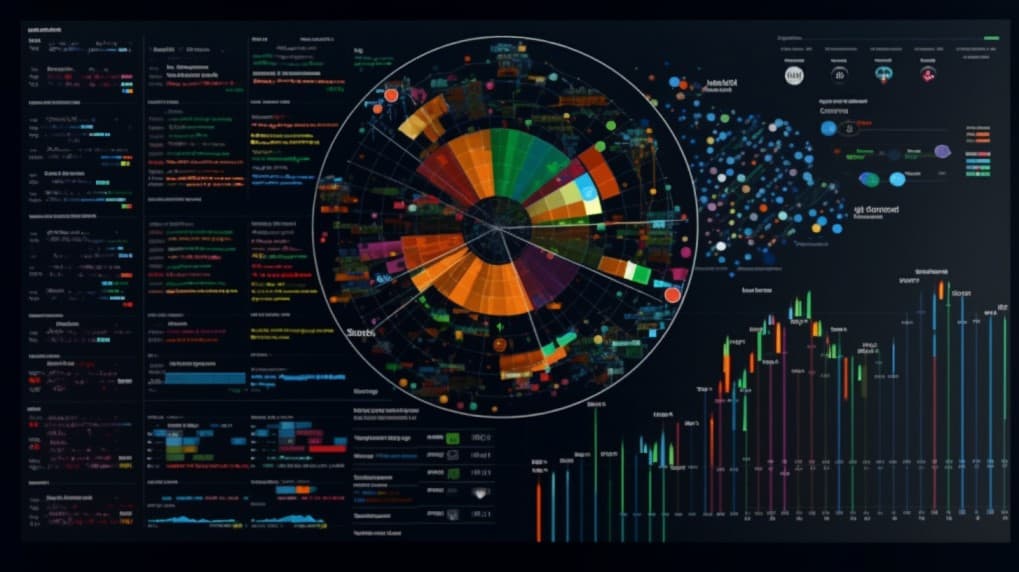
How does the IWC ETF work?
In the diverse world of finance, investors continually seek avenues to grow their wealth and secure financial stability. One such avenue is through the investment in Exchange Traded Funds (ETFs), which provide a basket of securities for investors, often tracking an underlying index. Among the array of ETFs available, the IWC ETF, focused on microcap stocks, stands out for its unique market segment. This article delves into the IWC ETF, exploring its underlying exposure, benefits, and considerations before deciding to invest.
IWC ETF: Overview
The IWC ETF or the iShares Micro-Cap ETF provides exposure to a niche market segment - micro-cap stocks in the U.S. As the name suggests, micro-cap stocks are those with market capitalizations generally between $50 million to $300 million. These companies are often in their infancy stages, poised for potential growth. The IWC ETF tracks the Russell Microcap Index, representing a diversified collection of over 1,300 publicly traded small and micro-cap companies in the United States.
IWC ETF: Underlying Exposure and What Does It Track?
The core objective of the IWC ETF is to provide investors with a vehicle to attain exposure to the micro-cap segment of the U.S. equity market. By tracking the Russell Microcap Index, the IWC ETF encompasses a vast range of sectors including technology, healthcare, financials, and consumer discretionary among others. This diversification allows for the reduction of risk associated with investing in this volatile market segment, while still offering the opportunity for significant returns.
 IWC overlap How does work the IWC ETF?
IWC overlap How does work the IWC ETF?
IWC ETF: Benefits of Investing
Investing in the IWC ETF offers several notable benefits. Firstly, it provides diversification which is crucial for reducing risk in an investment portfolio. By allocating funds across a myriad of micro-cap stocks, investors can mitigate the impact of a downturn in any single sector. Secondly, the IWC ETF offers the potential for high return on investment. Micro-cap stocks are often overlooked, yet they hold substantial growth potential, especially for disruptive startups and innovative companies. Lastly, the IWC ETF is managed by BlackRock, a reputable asset management firm, ensuring professional oversight and adherence to stringent regulatory standards.
IWC ETF: Considerations Before Investing
Investing in micro-cap stocks via the IWC ETF is not devoid of challenges. Due to their smaller size, micro-cap companies can be more volatile and less liquid compared to their larger counterparts. Furthermore, they may be subject to less analyst coverage and information availability which can lead to increased risk. Therefore, it's paramount for investors to weigh the potential rewards against the inherent risks, and consider their risk tolerance and investment horizon before venturing into the micro-cap realm through the IWC ETF.
Conclusion
The IWC ETF presents an enticing avenue for investors to explore the micro-cap segment of the U.S. equity market. With the backing of a reputable asset management firm and a diversified approach, it alleviates some of the risks associated with micro-cap investing. However, a thorough understanding and careful consideration of the associated risks are essential to making an informed investment decision. Through prudent analysis and perhaps consultation with financial advisors, investors can better ascertain if the IWC ETF aligns with their financial goals and risk tolerance.
Sources:
IWC ETF Official Website
Russell Microcap Index Overview
BlackRock Asset Management
IWC ETF issuer
IWC ETF official page
IWC quote and analysis
Discover the top holdings, correlations, and overlaps of ETFs using our visualization tool.
Our app allows you to build and track your portfolio.
To learn more about the IWC iShares Micro-Cap ETF, access our dedicated page now.
FAQ
What is the IWC ETF?
The IWC ETF is an exchange-traded fund that provides investors with exposure to a specific sector.
What is the underlying index that the IWC ETF aims to track?
The IWC ETF aims to track the performance of a specific index, which includes companies involved in its respective sector.
What types of companies are included in the IWC ETF?
The IWC ETF includes companies from its focused industry.
How does the IWC ETF work?
The IWC ETF functions by pooling investors' capital to purchase a diversified portfolio of sector-related stocks.
What are the advantages of investing in the IWC ETF?
Investing in the IWC ETF offers exposure to a specialized sector with potential for growth.